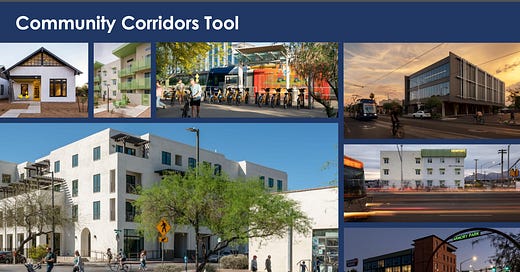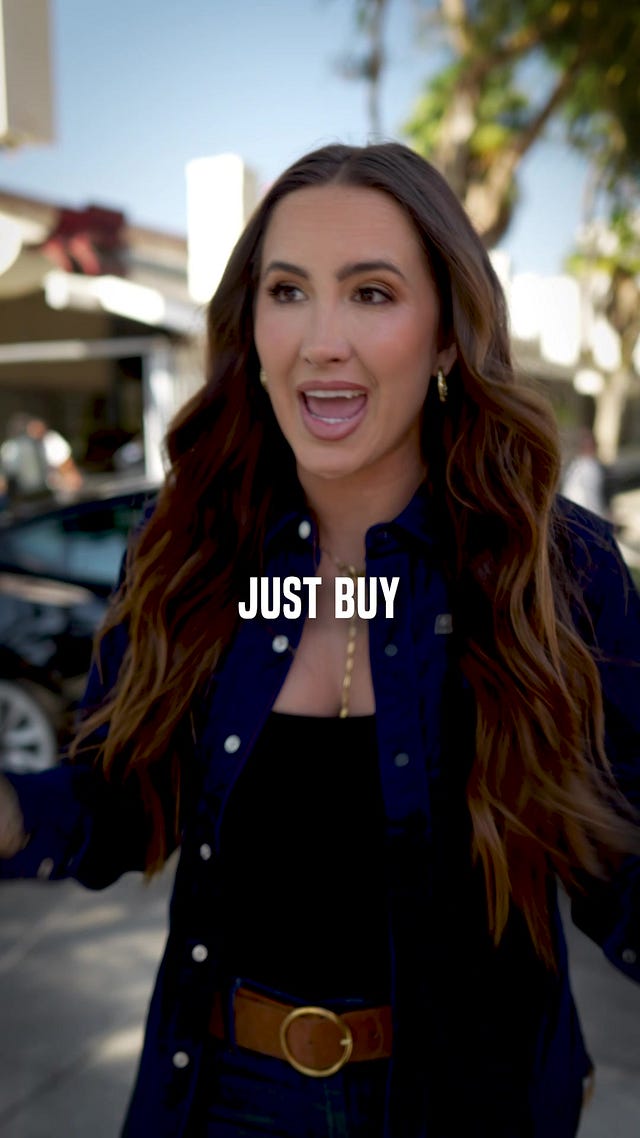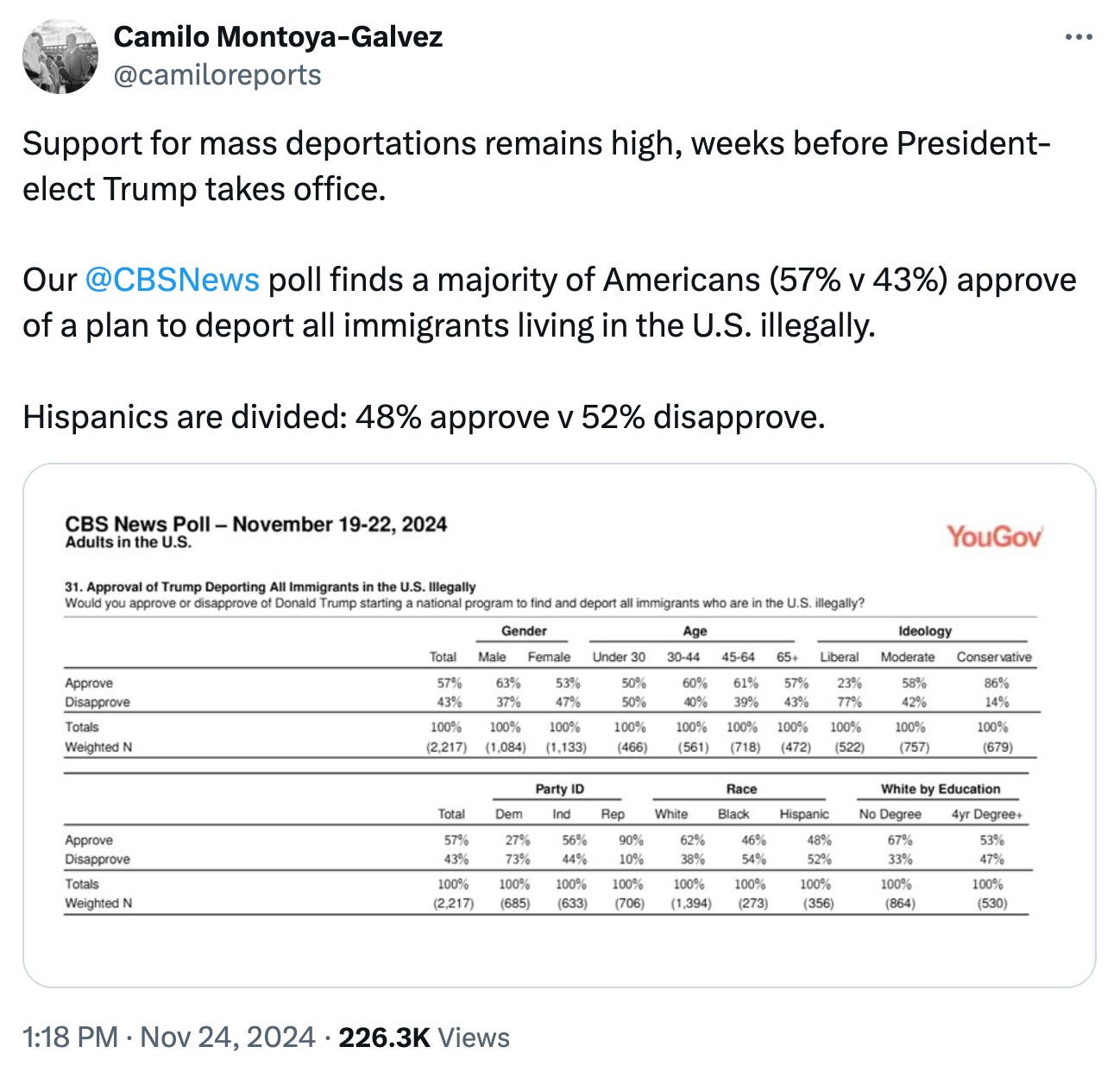Car wash boom isn't just a Tucson thing
Local officials everywhere struggle to deal with it ... Tucsonans react to mass deportation plans.
Tucson City Councilman Paul Cunningham put car wash companies on notice last week, saying he was getting calls from residents asking “How many car washes do we need?”
He wasn't necessarily proposing a new policy at last Tuesday’s city council meeting, but his comment did reflect the overall attitude of the city government as officials overhaul the zoning code to make streets more pedestrian-friendly, and use the precious real estate along major corridors as wisely as possible.
His comment also was an example of a struggle between local officials and car wash companies that is playing out across the country. Like Cunningham saying the city was “a little oversaturated right now” with car washes, officials from Ohio to Florida to California have been wrestling with a boom in the car wash industry over the past few years.
In Tucson, one of the highest-profile examples is the Oct. 24 draft proposal for the Community Corridors Tool, which is designed to get zoning rules in line with the city’s environmental and housing policies. The proposal explicitly calls out car washes: “Auto-oriented uses such as car washes, auto repair and drive throughs are not permitted to use the CCT.”
The car washes popping up along Speedway and other big streets in Tucson are a sign of a much larger, and fascinating, chain of events, as we found when we went through the deluge of news stories about the car wash boom since 2021.
People still really like washing their cars, but the tradition of doing it in your driveway is fading away. As more people live in apartments, where they don’t have driveways to begin with, they need a place to wash their cars. Plus, cars are often the most expensive asset a family owns and they want to take care of it.
The business model is changing, too. More people are buying monthly subscriptions to car washes, which allows companies to get steady revenue even during the rainy or winter months when people wash their cars less.
Did somebody say monthly subscription? Well, that’s what keeps the Agenda going, and our readers up to date, even during the slow months.
For small-scale entrepreneurs, starting a car wash, particularly an automated one, is a relatively easy way to open their first business.
Meanwhile, private equity firms are pouring money into car wash companies, which often boast more than $1 million in revenue every year per location.
Locally, car washes have sparked some backlash from residents, like in the Bear Canyon neighborhood after the city council approved a zoning change for a Mister Car Wash location, KGUN’s Eddie Celaya reported in August.1
That type of backlash puts even more pressure on officials in Tucson, and elsewhere, to work the rules so their city or town isn't overrun with car washes, while still respecting that they’re legitimate businesses and people just really like car washes.
Here are a few of the many examples from across the country:
Ohio towns and cities appear to be at the forefront of local pushback against car washes. The Cleveland suburb of Brook Park put a temporary moratorium on car washes last year and now officials are making it permanent. Another example is in Boardman, where officials are looking at zoning rules to limit where car washes can be built.
Lebanon, Tennessee: In a high-profile case, the planning commission denied a construction proposal for a Mister Car Wash location along a prominent thoroughfare in November 2023. But a judge told them earlier this year to reverse course, saying their decision was “arbitrary and capricious.”
Tampa Bay, Florida: County officials could ban car washes in what they call “innovation zones” and other areas they want to reserve for industries that generate more jobs.
Harlingen, Texas: Amid a drought, officials approved zoning rules that limit how many car washes can be established in the city. They also pointed to car washes using up commercial lots along the city’s main streets.
Cape Coral, Florida: Officials approved a moratorium on new car washes (and self-storage units) in April. The moratorium lasts until mid-January. Their argument is car washes take up valuable land as the city grows quickly.
The list goes on and on. And many of the examples we found were tied to a different type of business that pops up all over Tucson amid a nationwide boom: self-storage facilities.
But that’s a story for another day.
Rest in peace: Marana Mayor Ed Honea passed away on Friday at the age of 77, the town announced. Honea won re-election this month after running unopposed, which would have added another four years to the 37 he’s already served as mayor and town council member. His family’s involvement with the town goes even farther back, to when his grandfather helped found Marana in 1977. Numerous local officials sent out statements lauding Honea’s service and commitment to the town, the Tucson Sentinel’s Jim Nintzel reports.
Eyes on the horizon: As Tucson families with undocumented members prepare for the Trump administration’s mass deportation program, they’re putting together emergency kits, looking for U.S. citizen allies who can go with them to appointments with immigration officials, and preparing their children for what could happen if they’re taken away, the Arizona Daily Star’s Emily Bregel reports. Tucson Mayor Regina Romero said the Trump administration’s plans are “cruel and immoral.” She said part of Tucson’s history is protecting children and families from separation and she is “unwavering in my commitment to this fight.” Meanwhile, on the national stage, the mass deportation program has strong support, CBS News’ Camilo Montoya-Galvez reports.
Lower bond rates incoming: Tucson’s bond rating improved from “stable” to “positive,” Sentinel columnist Blake Morlock writes. The upgrade reflects a growing economy and a city administration that makes “timely budgetary adjustments as necessary to maintain financial flexibility,” Moody’s Ratings wrote in their evaluation of the city.
A decade plus what?: University of Arizona officials say it will take “a decade plus” to dig the university out of the financial hole created by an “accounting error” discovered last year, the Arizona Daily Star’s Prerana Sannappanavar reports. It doesn’t help that the university just paid former President Robert C. Robbins, who was in charge during the “accounting error,” a $40,000 bonus while he’s on sabbatical even though he technically stepped down in September, as Sannappanavar previously reported.
New caucus just dropped: Southern Arizona Republican U.S. Rep. Juan Ciscomani will co-chair the new bipartisan congressional “YIMBY Caucus,” Politico reports. The Yes in My Backyard movement argues local building and zoning regulations are largely to blame for America’s housing shortage.
Flying close to the sun: UA researchers are celebrating a probe flying closer to the sun than any other human-made object, Arizona Public Media’s Tony Perkins reports. The Parker Solar Probe, which UA astrophysicist Joe Giacalone is using to collect data on the sun, already penetrated the sun’s atmosphere for the first time and it’s going to get within 4 million miles of the sun in a few weeks.
7: The Tucson area’s ranking for “good” air quality days among 12 peer metro areas in the West.
Mister Car Wash is one of the biggest companies in the car wash game, with more than 500 locations across the country, and their headquarters are in Tucson.












Check out the financing of car washes.There’s a big up front expenditure on equipment that is then rapidly depreciated. It’s not that more cars need washing—it’s the tax code that has promoted this.
If you ever want to hear local perspectives on the YIMBY movement from the first official YIMBY Action chapter established in the state of Arizona (or to talk zoning reform, public transit funding, parking maximums, infill, housing policy, etc etc) email Tucson for Everyone at info@TucsonForEveryone.org!